Molding minds of the future through art, design, and style.
O.B. Montessori Center’s (OBMC’s) design refresh was unveiled just in time for face-to-face classes. Sara Soliven-de Guzman, the school’s president and COO shares, “The Montessori method for teaching is based on experiencing materials and processes, so a student’s whole being is involved in the absorption of knowledge. Materials, colors, surfaces, and shapes are all stimuli that encourage young minds.”
Classrooms, hallways, the cafeteria, and other activity areas of OBMC were reimagined and redesigned to usher in the use of color, motifs and symbols as a means for enhancing learning environments. Thoughtful design of some parts of the campus was conceptualized and developed in collaboration with Nazareno/Lichauco.
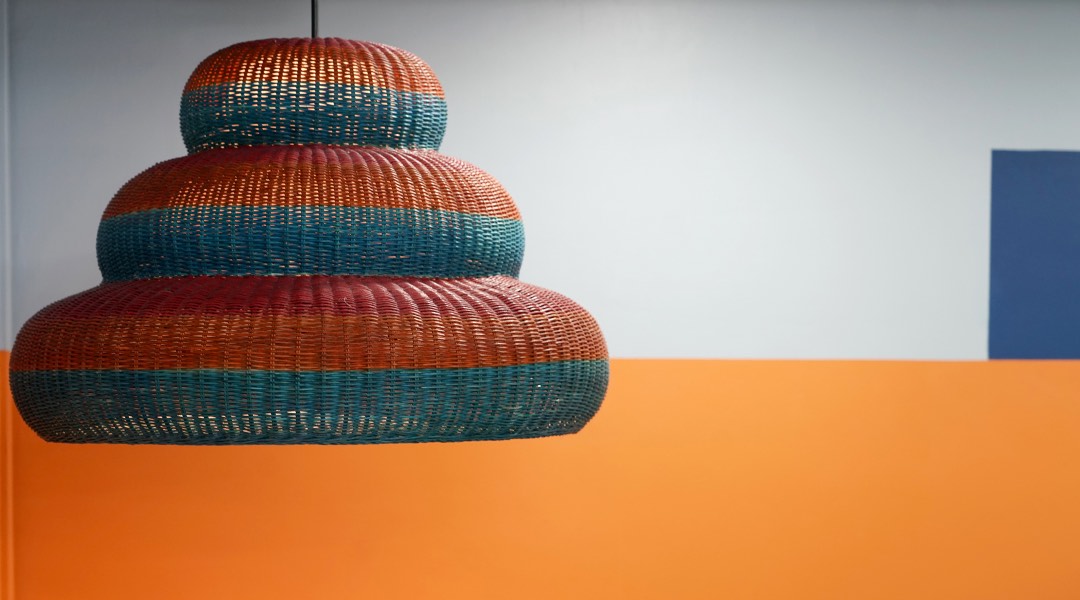
A Warm Welcome
According to Soliven-de Guzman, “We felt that we needed to improve the ‘vibe’ so that when the students return, they are welcomed with happy, exciting and energizing spaces. Our immediate goal was to create an environment that would welcome students to a new chapter in their lives.”
She describes the overall design as joyful adding that, “Joy is such an important component of learning and experiencing. I want our community to return to the campuses–and to the whole concept of the New Normal–with joyful anticipation of what is ahead.”
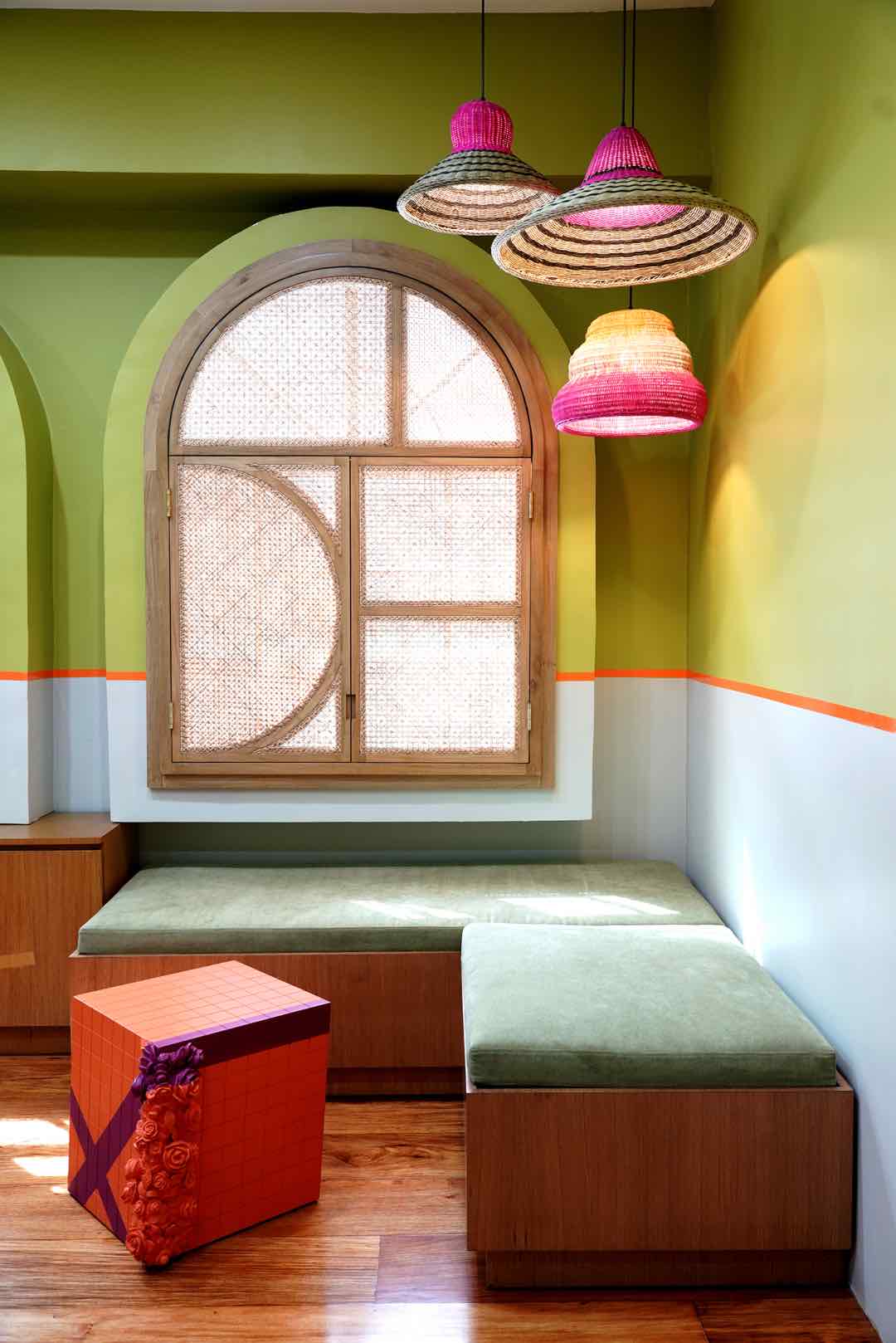
The project marked the start of a new day when creativity would become an integral part of the syllabus. She adds, “The progressive approach runs parallel to Montessori’s learning philosophy. Patterns spark the imagination of students and encourage them to think outside of the box. Design in every academic level also compliments the ages of the students–from the colors to shapes and forms.”
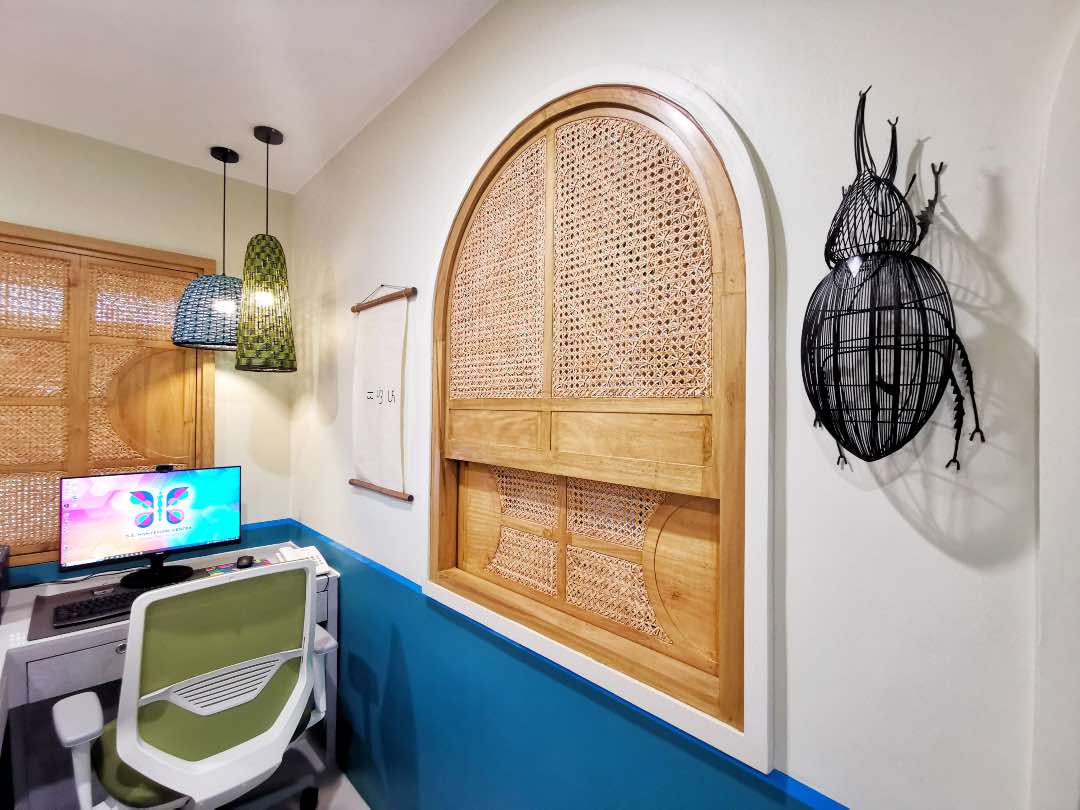
Classrooms for every academic level were specifically envisioned to suit the learning phase, thinking process, and day-to-day educational activities of its students.
Design Expertise
In addition, “Nazareno/Lichauco’s expertise and new age design was just what was needed to perk up the environment. They were thorough in studying and understanding the needs of teachers and students, the function of every classroom and curriculum of every department. Their designs follow the Montessori approach in education.”
In the Casa (preschool to kindergarten) classrooms, for instance, Nazareno/Lichauco utilized basic forms and colors to create the feeling of being cocooned in a park. “We utilized these elements to give the essence of being in nature–trees, ground, and the sun.”
Design for the Primary classrooms were intended to showcase more complex forms. The conceptual biosphere composed of water, earth, and air anchored the designed narrative as an interpretation of how the elements are experienced or encountered in our daily lives.
Intermediate and Junior High Classrooms explore applied and widely-applauded works in the fields of science, arts, design, architecture. These elements take students through a journey in time and space to milestones and moments that helped define the modern world we live in. Among the notable figures highlighted in these learning environments are: Leonardo da Vinci, Nikola Tesla, Leticia Mumford Geer, Zaha Hadid, as well as Charles and Ray Eames.
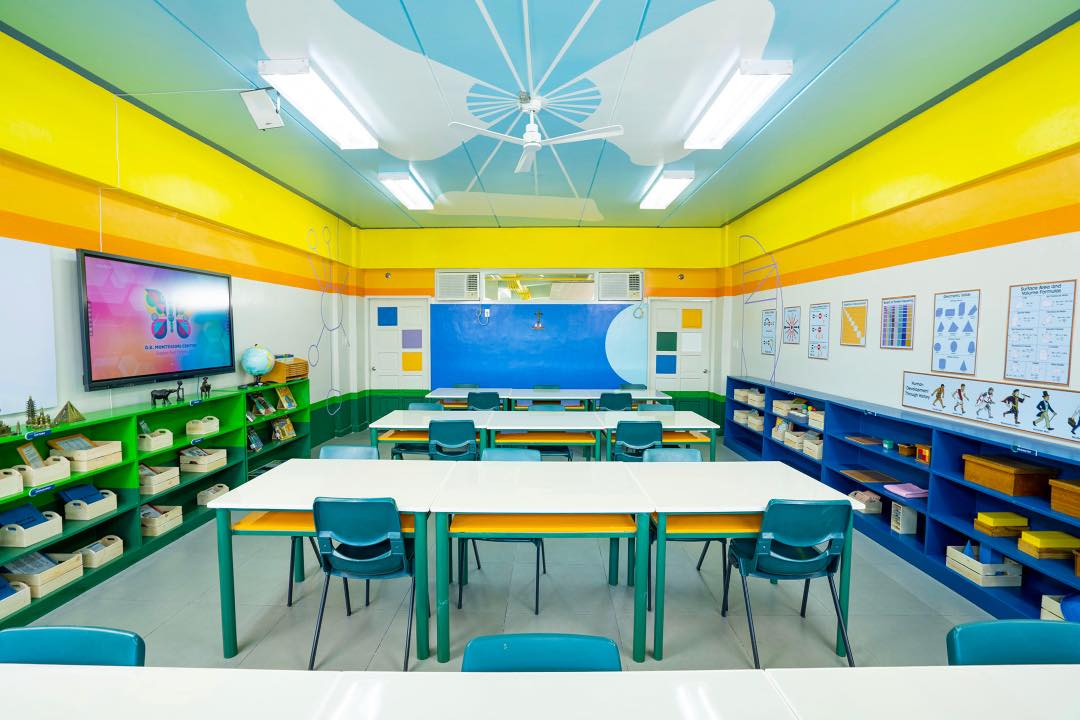
At the Senior Level, classrooms were designed to highlight important figures in Philippine contemporary art including Roberto Chabet, Nena Saguil and Leo Valledor. According to Nazareno/Lichauco, “We wanted to highlight and celebrate Filipino and Filipino-American conceptual art masters in the Senior High School classrooms. Conceptual art emphasizes the importance of an idea, expressing the abstract. The designs track a journey in forms, topics and concepts. As Senior Year is a culmination of one’s secondary education, we found it fitting to culminate with Philippine conceptual art.”
Creativity in the Syllabus
Regardless of the course, academic level, subject or industry, creativity has proven to be the mother of innovation, progress, and problem solving. At OBMC, learning modules and materials harness the creative mind of both its teachers and students. It is one of most important tools utilized to aid in self directed learning through exploration and play.
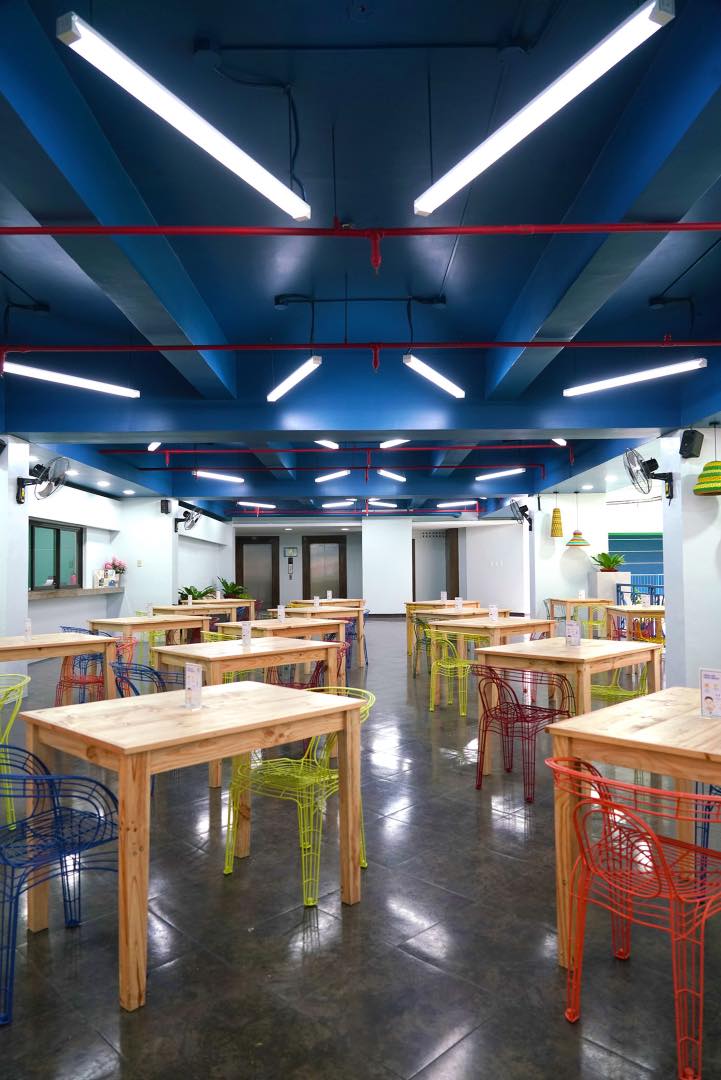
Soliven-de Guzman, who leads the charge in celebrating creativity in the syllabus of OBMC declares, “The campus refresh is very much in keeping with the OBMC philosophy that stresses creativity, innovation, and adaptability. The Montessori way of teaching cannot be separated from the physical setting, the environment that is most conducive for learning and absorbing knowledge. This refresh certainly helps to show the OBMC community that it is a new world we are living in, and we must be open to the experiences it offers.
To learn more about Design in the Syllabus, follow OBMC on Instagram @obmontessoricofficial.
Banner photo courtesy of OBMC.





